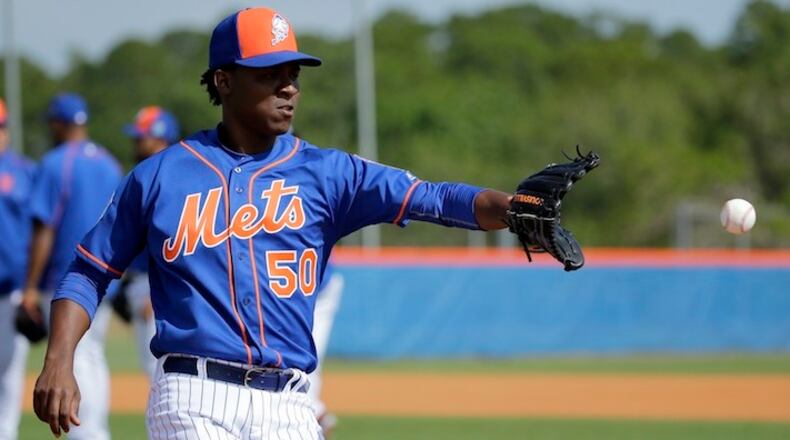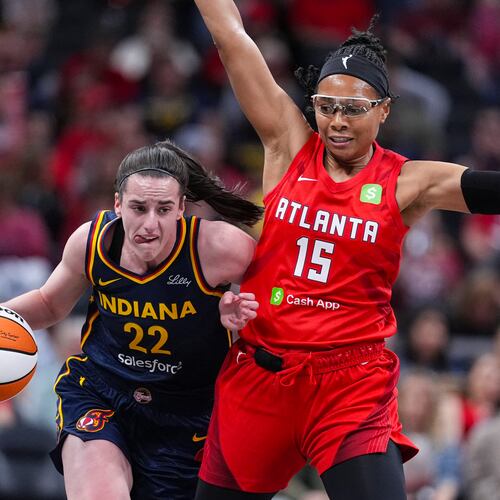Whenever the pitching coach Frank Viola gave Rafael Montero instructions during his time with the Las Vegas 51s in recent years, Montero would nod or acknowledge them in some nonverbal way. Montero was shy and not fluent in English, but Viola could tell by Montero’s body language and actions if he understood.
By accident almost, coaches tend to learn to read Montero well.
That is how Viola could tell something was wrong in April, when the New York Mets sent Montero to the 51s, their Class AAA affiliate. After cruising through the Mets’ organization as a top prospect, Montero was finally facing adversity. He had not cracked the Mets’ rotation out of spring training, was converted to a reliever and was now being shifted back again.
Viola could tell Montero was not himself from the way he moped around the field. He lacked the same confidence, he hung his head more and he did not smile as much. His mechanics, which had been praised by the organization as nearly perfect, looked sloppy.
“He had never been through something like that,” Viola said. “It was like a hurricane: it all hit him at once. The next thing you know, he’s messed up in the head a little bit. Then the next thing you know, he’s got a sore shoulder.”
Less than a week after Viola last saw him, Montero made a spot start for the Mets against the Miami Marlins and pitched well, allowing only three runs in 5 2/3 innings. But afterward, he told the trainer Ray Ramirez that he had felt something in his throwing shoulder.
The Mets had planned to send Montero back to the 51s, but instead they placed him on the disabled list and sent him to be examined. What happened next still perplexes the Mets. According to them, team doctors found inflammation in Montero’s shoulder but nothing too serious, but Montero said he continued to feel discomfort and did not pitch for the Mets again in 2015.
This spring, having essentially missed a year, Montero is trying to regain the Mets’ trust, and the Mets are trying to determine if he is mentally and physically ready to win one of the last spots in their bullpen, perhaps as a spot starter.
It was a humbling notion for Montero to consider. This time two years ago, he was considered a better prospect than Jacob deGrom. In 2014, when they were called up, Montero was pegged for the rotation and deGrom for the bullpen — until Dillon Gee was injured. Then, when Montero struggled, the Mets demoted him and questioned his mental fortitude.
Those concerns surfaced again as the Mets tried to figure out what was wrong with Montero last year. According to the assistant general manager John Ricco, the injury was “minor stuff, some inflammation, that kind of thing,” and surgery was not recommended.
Montero said, through an interpreter, “It was just a little something that really bothered me, and then it got to bothering me a lot, just because it wouldn’t go away.”
The Mets sent him back to the doctor several times, and no significant damage was found, causing more frustration. Montero had made five minor league appearances and was slowly building his pitch count when the Mets announced in August that he had sustained another “setback” and was done for the year.
“Part of it was, I think, it being his first experience with some kind of issue,” Ricco said. “So he was being careful. Our strategy was to be conservative, let him get through it, communicate with him as much as possible, and let him figure it out.”
This winter, the Mets had him pitch 10 games in the winter league to test the shoulder and determine that it was stable. “I am feeling very, very healthy,” Montero said Monday.
When Montero arrived at camp, manager Terry Collins gave him a pep talk, as Collins does with most players fighting for jobs. Collins told Montero that the organization should not have had to re-sign Bartolo Colon to be the fifth starter. “You should have been the guy,” Collins told him. “Get your act together. We haven’t forgotten about you. We still want you.”
During his news media session, Montero seemed determined to prove to the Mets he belonged. He said he would be “comfortable wherever they put me.” His agent had told the Mets, according to Ricco, that he would “do whatever it takes to be in the big leagues.”
During the first week of pitchers’ drills, Montero has otherwise appeared to be just as quiet as before, content to follow Colon and Jeurys Familia and stay out of the spotlight.
“I want to see Rafy again,” said Dan Warthen, the Mets’ pitching coach. “I want to see the kid I knew two years ago. The kid, not just the pitcher. I want to see the person. He seemed depressed all year, like there was something wrong all the way from spring training. I want to see that smile again. I want to see him bouncing around. I want to see him happy again.”
About the Author
Keep Reading
The Latest
Featured


